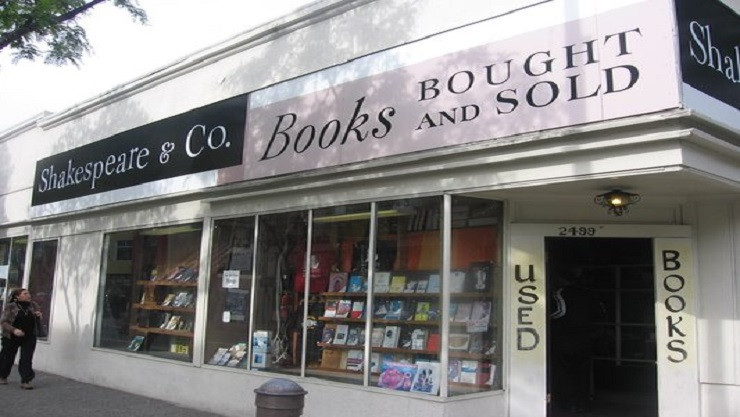At that time, partner Ito Ripsteen (a broker who also serves as a board member for the Downtown Berkeley Association) told the Contra Costa Times that he had no immediate plans to bring in new tenants. But Wobber was soon informed that the group wanted the store to undergo sweeping renovations — “not leveling the building, but [construction and remodeling] inside and out,” he says. This would have meant Shakespeare closing for six to nine months, something Wobber felt the store could not withstand financially.
Wobber says he understands the owners’ predicament, and is friendly with the landlord. “[Ripsteen] would like to have me there, I completely understand, but it’s just not practical.” Wobber said he believes the landlord is “committed to retail,” but otherwise couldn’t speculate on the fate of the building. Ripsteen was not immediately available for comment.
As for dwindling business, Wobber points to both e-books and the rise of online giants like Amazon (which “seems to have a goal of driving the hard copy book out of existence,” he says), as well as “a changing culture” and shifts in Berkeley’s landscape.
“People want things to be a lot more immediate, and I’m afraid we’re living in a kind of soundbite culture … there’s also just not as much foot traffic on Telegraph as there used to be. Berkeley’s more focused toward downtown now, maybe.”
Wobber put the bookstore on the market in August of last year, but said he hadn’t gotten any solid offers until he made a call late last week to Powell’s Books, the Portland, Oregon-based store that bills itself as “the largest independent used and new bookstore in the world.”
Buyers from Powell’s flew down within days; after surveying the store Tuesday afternoon, they made Wobber an offer for his entire stock, and Shakespeare and Co. closed for good at 8pm last night.
Lovers of actual physical books will note that this is hardly an isolated event, especially in Berkeley: Cody’s Books, another independent Telegraph Ave. stalwart since 1956, shut down in 2008, facing similar financial pressures. Though a few other booksellers remain nearby — the tiny Revolution Books is tucked into a small shopping center off Channing — Shakespeare and Co.’s closure means that Moe’s Books, which has been in business just across the street from Shakespeare since the mid-’60s, is technically the last bookstore on the Avenue.
According to writer Aaron Elliott, who published an entire issue of his Cometbus zine dedicated to the history of Telegraph Avenue, Moe’s maintained a bitter, long-running feud with Shakespeare & Co. One anecdote in Cometbus recounts the one and only time Moe’s Books owner Moe Moskowitz set foot inside the competing store: Moskowitz chased a shoplifter across the street and into Shakespeare & Co., looked around, realized where he was and walked out.
Wobber shows no signs of such bitterness, however. “Moe’s is a great place,” he said. “I’ve been friendly with them. They were among the first to hear, and a couple [employees] came right over to wish me well.”
As for him, he plans to focus on Vicarious Experience, a store he’s owned — in a building he also owns — since 1979. He closed it temporarily when he took over Shakespeare in 2004, but with that store closing, he’ll be back in Cotati full-time, full steam ahead. If people miss the Shakespeare & Co. experience, they should come see him in Cotati, he said. “It’s still the same person selling books.”
Still, he acknowledges Shakespeare’s closing is “a big event” — for him personally, as well as for Berkeley.
“We had a good bookstore,” he says. “I had a lot of good relationships there with people from all walks of life. Some of our best customers didn’t have a home and just needed a place to read … it was a community. And I’ll miss being part of it.”


